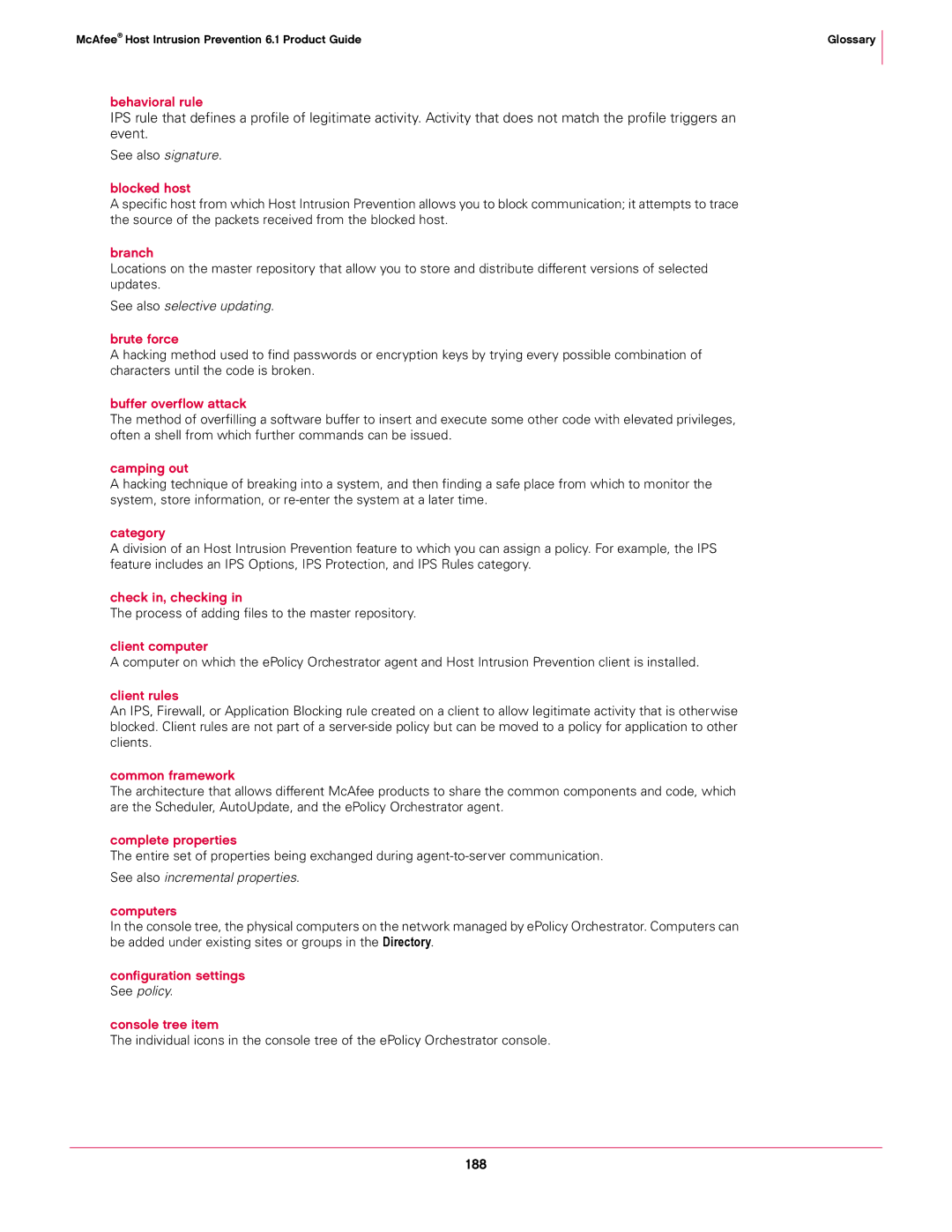
McAfee® Host Intrusion Prevention 6.1 Product Guide | Glossary |
behavioral rule
IPS rule that defines a profile of legitimate activity. Activity that does not match the profile triggers an event.
See also signature.
blocked host
A specific host from which Host Intrusion Prevention allows you to block communication; it attempts to trace the source of the packets received from the blocked host.
branch
Locations on the master repository that allow you to store and distribute different versions of selected updates.
See also selective updating.
brute force
A hacking method used to find passwords or encryption keys by trying every possible combination of characters until the code is broken.
buffer overflow attack
The method of overfilling a software buffer to insert and execute some other code with elevated privileges, often a shell from which further commands can be issued.
camping out
A hacking technique of breaking into a system, and then finding a safe place from which to monitor the system, store information, or
category
A division of an Host Intrusion Prevention feature to which you can assign a policy. For example, the IPS feature includes an IPS Options, IPS Protection, and IPS Rules category.
check in, checking in
The process of adding files to the master repository.
client computer
A computer on which the ePolicy Orchestrator agent and Host Intrusion Prevention client is installed.
client rules
An IPS, Firewall, or Application Blocking rule created on a client to allow legitimate activity that is otherwise blocked. Client rules are not part of a
common framework
The architecture that allows different McAfee products to share the common components and code, which are the Scheduler, AutoUpdate, and the ePolicy Orchestrator agent.
complete properties
The entire set of properties being exchanged during
See also incremental properties.
computers
In the console tree, the physical computers on the network managed by ePolicy Orchestrator. Computers can be added under existing sites or groups in the Directory.
configuration settings See policy.
console tree item
The individual icons in the console tree of the ePolicy Orchestrator console.
